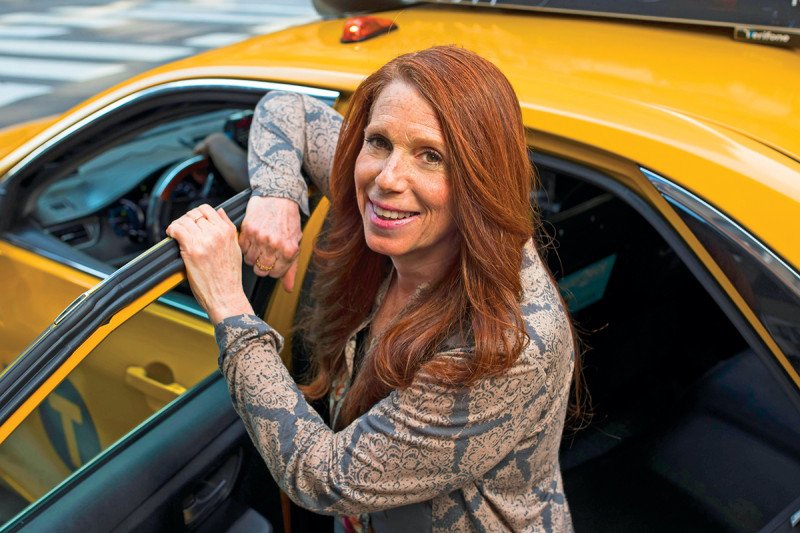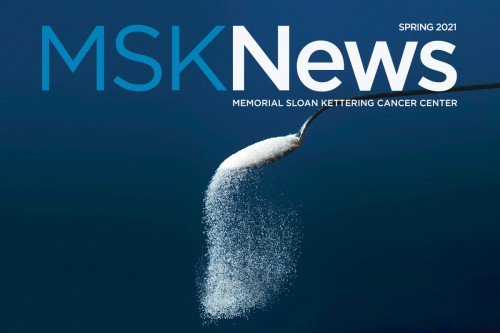
A New York City taxi garage at may seem like the last place to look for medical advice. But that made it perfect for internist Francesca Gany and her team of ten. Before dawn on a January day in 2016, they set up a health fair amid the grinding noise and choking exhaust fumes.
As members of Memorial Sloan Kettering’s Immigrant Health and Cancer Disparities Service (IHCD), the mission of Dr. Gany and her team is to bring healthcare to people who often fall through the cracks. “During our screenings that day,” recalls Dr. Gany, “we had to immediately refer two drivers to the emergency room.” She explains that “one man had diabetes that was so out of control that he drove his cab every day with gallons of water in the passenger seat because he was so thirsty from his elevated blood sugar.”
One week later, the man, an immigrant from Pakistan in his late 30s, visited the staff at IHCD to thank them, saying “that he was now on medication and felt like a new man,” recalls Dr. Gany.
Those kinds of successes are hallmarks of the IHCD, which marks its tenth year at MSK in 2021. The service is dedicated to promoting health equity for immigrants, minorities, and other underserved communities. And the efforts throughout every corner of New York City have grown to influence healthcare initiatives on a national level and are used as a model around the world.
Making the Connection
MSK invited Dr. Gany to establish the IHCD in 2011, 15 years after she began the program’s forerunner at New York University School of Medicine. At MSK, the service has grown to serve thousands of people every year by connecting them with health insurance, teaching them about their health, screening them for cancer and cardiovascular risk factors, helping them navigate through cancer treatment, and much more.
“Our staff are from the communities that we serve,” Dr. Gany explains. “Many are themselves first- or second-generation Americans who are deeply familiar with the issues of their communities and speak the language.” The tight-knit staff of the IHCD is now more than 50 strong and hails from 21 countries, representing Asia, Africa, the Middle East, Europe, all parts of the Spanish-speaking world, and the Caribbean.
That wide breadth of perspective means the IHCD can conduct targeted outreach. The Arab Health Initiative, for example, has conducted health education efforts involving nearly 8,000 women and children, provided crucial support services for 150 cancer patients, and helped hundreds more people get cancer screenings. Ventanilla de Salud (which means “health window”), aimed at Spanish speakers, has given health screenings to more than 950 people and helped nearly 9,000 people get social work and health- care assistance.
Yo, Taxi!
Another pillar of the IHCD is to deliver services where people are — no matter how unconventional the setting. That’s what led to the outreach to cab drivers, called the Taxi Network. Dr. Gany explains that “even though taxis are so visible, the drivers are often unseen by the healthcare system.”
Many can’t visit healthcare centers during business hours. In addition, she says, “They have so many cancer and cardiovascular risks: Their work is very sedentary, they endure high stress because of traffic and passengers, and they suffer high exposure to dangerous particulates.”
To help, the IHCD sets up healthcare fairs in taxi garages, with blood pressure monitoring, risk assessments for prostate and colorectal cancers, and more. Nearly 15,000 people have participated so far.
A Helping Hand
A major focus of the IHCD is the fundamental act of communicating. Dr. Gany explains, “One out of every four New Yorkers has limited proficiency in English. That can make it so much more difficult to get healthcare.” In fact, she continues, “our surveys have found that 16 percent of cancer patients who have limited English proficiency do not know their cancer diagnosis.”
To help, the IHCD provides a wide array of translation services and even teaches translators how to be more effective advocates.
MSK’s Food Pantry has delivered 10,000 bags of groceries to more than 600 people with cancer since the pandemic began.
Then there are the nonmedical needs that can have a major impact on health. Dr. Gany recalls, “We helped a mother in her late 20s who was diagnosed with breast cancer not long after giving birth.” To care for the family’s other children during her treatment, the woman’s husband had to leave his job, plunging the family into dire financial straits.
The IHCD stepped in with supplies for the children and groceries, and the woman and her family are now doing well. Dr. Gany explains, “We know that when people are going through cancer, things like food and rent assistance, childcare, and health insurance can literally save their lives, even though they aren’t medical treatments per se.”
The Pandemic Response: Coming Full Circle
The IHCD also responded quickly to the job losses so many people suffered in the wake of COVID-19. The program’s signature Food to Overcome Outcome Disparities (FOOD) Pantry has seen the number of people using its service go up threefold since March 2020.
To help deliver more than 10,000 bags of groceries to more than 600 cancer patients, the FOOD Pantry program gratefully accepted the help of MSK transportation drivers. The IHCD also reached out to taxi drivers who had attended health fairs — could they lend a hand?
Sure enough, taxi drivers who the IHCD had helped stepped up during the hour of need to deliver groceries to cancer patients. For Dr. Gany, it proved that the service’s outreach had come full circle. “What we do is so rewarding. And it’s also an indication of how just a little bit of human kindness goes such a long way.” •
The International Angle

The insight came at as Memorial Sloan Kettering surgeon Peter Kingham operated on a man with rectal cancer in Ile-Ife, Nigeria, in 2012. Alongside him was Isaac Alatise, a Nigerian surgeon who trained at MSK.
As they operated, Dr. Kingham says, “We recognized that so much about cancer was different in Nigeria, even the kinds of patients we were seeing.” That insight, says Dr. Kingham, who has spent decades doing medical work in sub-Saharan Africa, led him and MSK oncologic surgeon Sir Murray Brennan to create the MSK Global Cancer Disparities Initiatives program.
The mission is to help build capacity to improve screening, care, and outcomes in lower-resource environments. To drive home the need, Dr. Kingham uses a stark illustration: “In America,” he explains, “you can visualize the typical breast cancer tumor as the size of a pea. In Nigeria, the typical tumor is the size of an orange.”
To improve cancer screening and treatment, the MSK effort collaborates with Nigerian counterparts. Research on the ground helps identify promising new technologies, like a handheld breast screening ultrasound tool that connects to a tablet. “Instead of massive and expensive mammogram infrastructure,” says Dr. Kingham, “with these new devices, a provider can easily carry them to a community center to screen for breast cancer.”
The team of 20 in New York also leverages MSK strengths, such as sequencing tumor samples to identify genetic targets for therapy and digitally connecting doctors in Nigeria with world-class MSK pathologists for training and collaboration.
The result, says Dr. Kingham, helps save lives and prevents suffering, “and hopefully will be applicable across the African continent and beyond.” •


